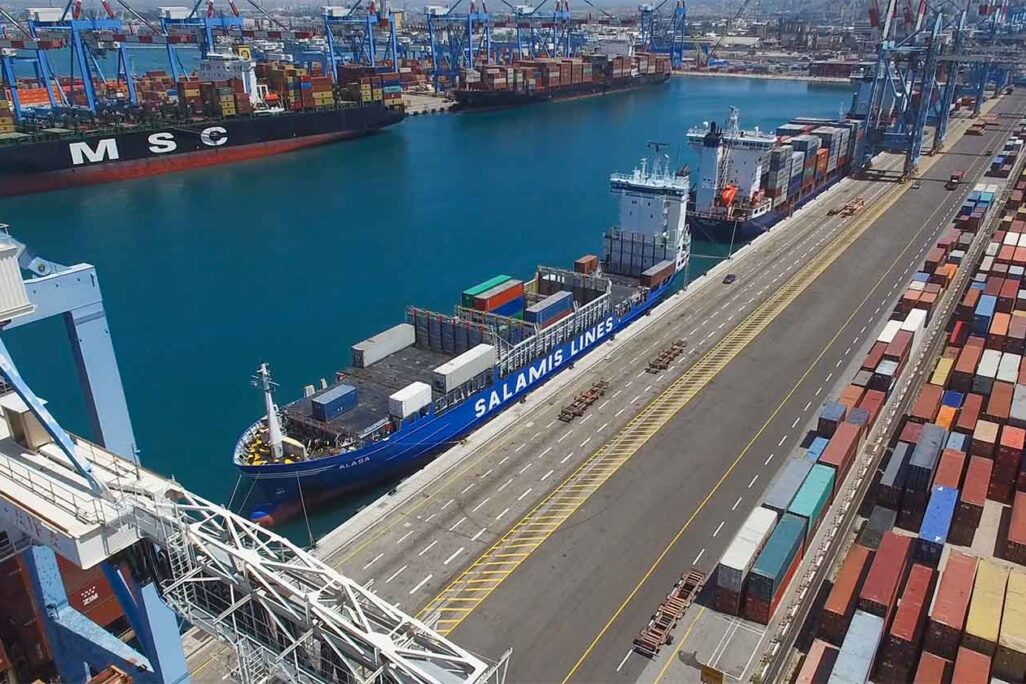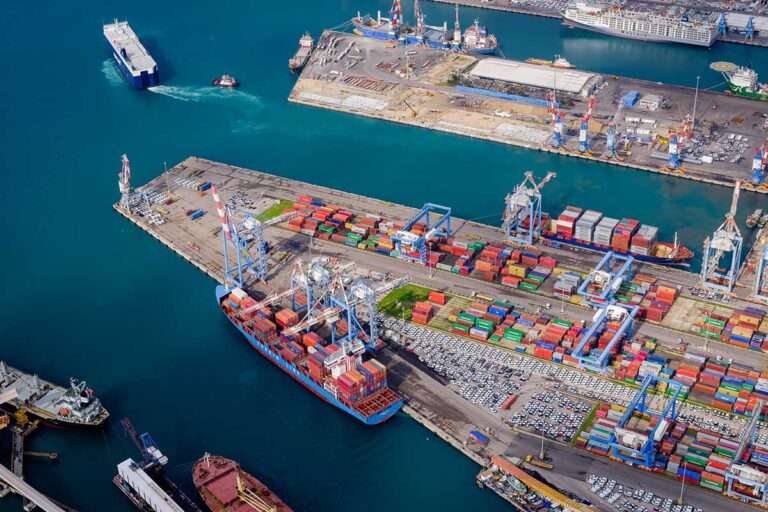
The Histadrut formally declared a labor conflict at the ports of Haifa and Ashdod last week in response to the government’s unilateral decision to allow “general cargo” (items that are not transported in shipping containers) to be unloaded in two newly constructed ports. If an agreement is not reached, the workers at the ports of Haifa and Ashdod can go on strike starting from February 1.
The Histadrut wrote that the government’s decision violates agreements that have been in place for years following negotiations that led to massive reforms to the Israeli shipping industry in 2003. Those reforms eventually led to the establishment of two new ports, the “Bay Port,” which officially opened in September 2021 next to the Port of Haifa and the “Port of the South” which is scheduled to open this year next to the Port of Ashdod.

“For eight years the government has told us that the new ports won’t handle ‘general cargo’ ships,” said Avi Edri, Chairman of the Transportation Workers’ Union. “All of the agreements, the professional and financial safety nets for workers, and retirement plans that were signed were based on the government’s guarantee that the existing ports would continue to handle general cargo.”
General cargo ships transport items that do not have a uniform volume and therefore cannot be stored in storage containers, such as iron beams and large machinery. The loading and unloading times for general cargo ships are much longer than those of container ships.
“Bringing these ships into the new ports would constitute a fatal financial blow to the existing ports, as well as the collapse of all of the reform agreements that were achieved through blood, sweat, and tears,” Edri said. “We hope that the government and its representatives will uphold the guarantees that they made us in the reform agreement process.”
Previously, an injunction had been in place against port workers going on strike. The injunction was canceled after a reform agreement was signed with the Port of Haifa in November 2020. In February 2021, an additional agreement was signed with the Port of Ashdod. These agreements were based on an understanding reached between workers and the government that the new ports would focus on shipping containers and that only the existing ports would continue to process general cargo.
An official response released by the Transportation Ministry claims that “[t]here is no legal basis to declare a labor struggle at this moment, at the height of the Omicron wave and the serious backups at the ports that are causing enormous damage to the economy. Taking such steps is irresponsible and constitutes an abandonment of the workers’ commitment to industrial harmony as stated in the collective agreements.”

Moshe Zneh, the director of the port of Ashdod, disputed the Transportation Ministry’s description of events this week at a conference of the Industrialists’ Union in Eilat, saying that “[t]here are only 12 ships waiting outside of the Ashdod port.”
“A port is like a sort of factory where ships are loaded and unloaded. It’s a very challenging situation to operate in, and unfortunately, there’s a tendency to only tell one side of the story,” said Zneh, explaining that waiting lines at ports is a global issue and not unique to Haifa or Ashdod. “To present such a dire picture isn’t fair.”
“A year and a half ago at the Port of Ashdod, we created an incubator and welcomed 40 startups from the brightest minds in Israel, [who] helped us find technological solutions to streamline the work at the port,” said Zneh. “We invested more than two million shekels in the most advanced technologies that are already being put into use this year. They’re going to turn the Port of Ashdod into one of the most advanced ports in the world.”
Ron Tomer, President of the Industrialists’ Union, said at the conference that he supports the government’s decision to allow the Bay Port to unpack general storage ships.
“The time has come for the government and the Ministry of Transportation to get involved,” said Tomer. “All of the ports in Israel should be unloading general storage and reducing the backup.”
This article was translated from Hebrew by Sam Edelman.






